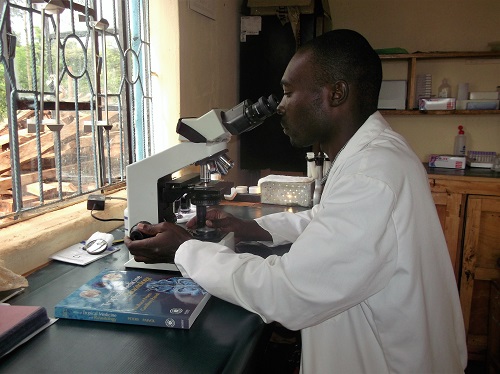TB is a disease that has become increasingly common in places such as rural Kenya where there is the burden of poverty and HIV, and we regularly see people with the disease at our healthcare clinic in Buburi.
In the developed world TB is unusual because in most healthy people the immune system fights the infection, kills the bacteria and the infection does not continue. But certain conditions weaken the immune system and TB is much more prevalent in people with HIV or Malnutrition, the very young and the very old, pregnant women and is associated with poverty and overcrowding. It is a major cause of illness and mortality in Kenya and affects all age groups but the greatest toll is in the productive age group of 15-44 years old.
However, testing is difficult. The healthcare facility needs access to clean water, electricity, adequate and safe collection and disposal of sputum specimens, a microscope and a lab technician who is adequately trained and proficient at “reading” the microscope slides. This can be very challenging in a lab where there is no running water and regular power cuts! Also, the costs of testing can be high for the clinic in terms of time, equipment and expertise. At the present time Buburi healthcare clinic doesn’t undertake TB testing as we cannot fulfil the necessary criteria, so the staff refer patients to a larger government clinic. TB testing is definitely a service we would like to offer at Buburi but it will have to wait until further funding is available.
The good news on World TB Day is that TB is treatable with antibiotics. However there are problems worldwide with drug resistance and ongoing monitoring of any patient with TB is important. Community health workers like ours in Buburi, are vital in following up with these patients and ensuring they collect and complete their prescribed medication course, which may be for at least 6 months in total and require taking up to 4 different antibiotics, and also checking that other family members have been screened for the disease. In this way we are doing what we can to support TB patients in our community and help them to lead healthier lives.

